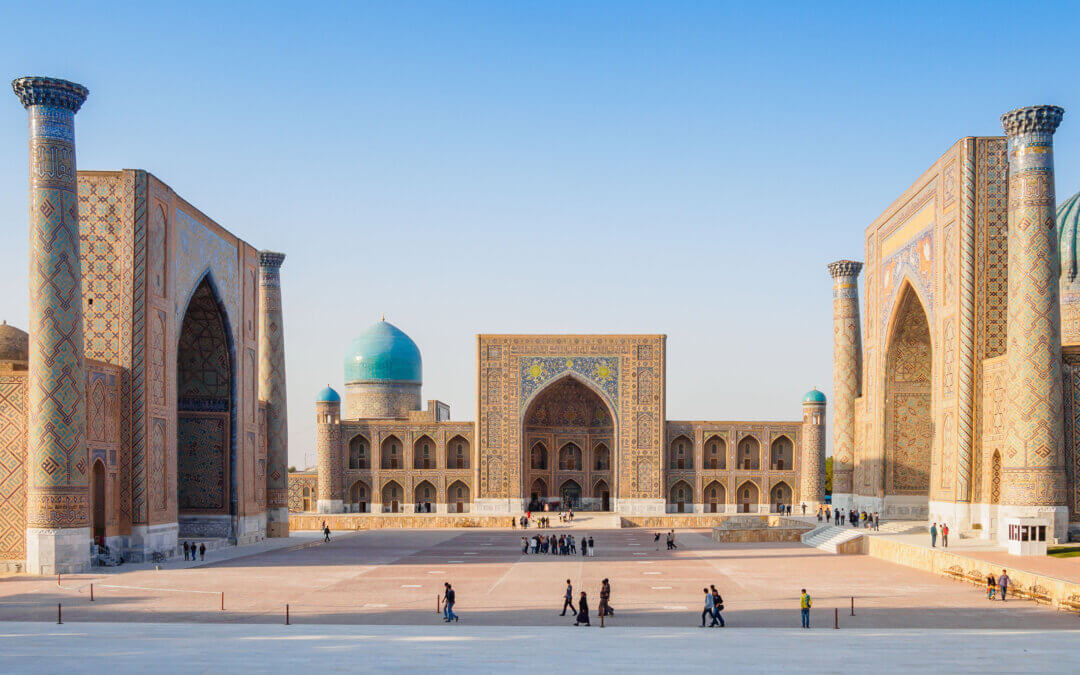
Hosted by: Ministry of Ecology, Environment Protection and Climate Change, Government of Uzbekistan and the Secretariat of the Global Snow Leopard and Ecosystem Protection Program
Supported by: International Snow Leopard Trust, United Nations Environment Program, World Wildlife Fund, United States Agency for International Development, and Peace Nexus Foundation
The high mountains of Asia and their glaciers form the Earth’s Third Pole, comprising the Himalayas, Hindu Kush, Pamir, Tien Shan, and Altai Mountains, as well as the Tibetan Plateau. The region provides life-sustaining water to populations downstream and supports a third of humanity. It is also one of the most vulnerable regions to climate change, with an expected acceleration in the rate of warming being twice that of the Northern Hemisphere average. Melting glaciers, extreme events, changing seasonal patterns and enhanced risk to diseases are putting the region’s people and wildlife populations at greater risk, thus threatening the fabric of life and development in Central and South Asia. Climate Adaptation strategies need to be put in place urgently for the communities in the region that have a high dependence on ecosystem services. While the world is aware of the plight of the North and South Poles, the “Third Pole” – Asia’s high mountains – faces a silent crisis.
The endangered snow leopard is the symbol of the importance and vulnerability of the Third Pole. This magnificent species has brought all our nations together to collaborate for conservation and climate action in Asia’s high mountains under the Global Snow Leopard and Ecosystem Protection Program. This intergovernmental alliance just turned 10 years old, having been established under the Bishkek Declaration of 2013.
The VIII Steering Committee Meeting of the Global Snow Leopard and Ecosystem Programme (GSLEP), strategically aligned with the upcoming CMS COP14 in Samarkand, Uzbekistan, will be represented by the Environment Ministers from snow leopard range countries, alongside representatives from partner organizations and International Financial Institutions. The meeting will collectively assess the efforts undertaken by 12 snow leopard range country governments as well as the GSLEP Secretariat and partners towards the implementation of the Bishkek Declaration; identify priority actions for the future; assess future resource needs, and identify the modalities of conservation and climate adaptation financing. Sessions will focus on climate action and adaptation support for local and indigenous communities and snow leopard conservation, ethical conservation movement, transboundary cooperation, innovative financing mechanisms, and sustainable practices in linear infrastructure. The snow leopard will be promoted as an international icon of climate resilience.
As we commemorate the 10th anniversary of the GSLEP program, we hope this meeting will serve as a catalyst for transformative action for the next decade and a promise to secure the future of the Third Pole for the benefit of the region’s biodiversity and, indeed, all of humanity.
In case you would like to attend the meeting remotely, please follow the link and instructions below:
When: Feb 10, 2024 12:30 Islamabad, Karachi, Tashkent
Register in advance for this webinar:
https://snowleopard-org.zoom.us/webinar/register/WN_14-V4LGVS0u2zucVi48nkA
After registering, you will receive a confirmation email containing information about joining the webinar.
The VIII Steering Committee Meeting of the Global Snow Leopard and Ecosystem Protection Detailed Agenda (Provisional)
Date: February 10-11, 2024.
Venue: COP14 Expo Centre, Samarkand, Uzbekistan
GPS location: https://maps.app.goo.gl/u8Cb4Am5yu2Y4ssK6
| Time | Event |
| Pre-Steering Committee Events
February 10, 2024 |
|
| 12:30-13:00 | Opening Ceremonies and Technical/Thematic Sessions’ Inauguration
|
| 13:00-15:00 | Country Updates
|
| 15:00-15:30 | Coffee Break |
| 15:30-18:00 | Thematic Updates and Presentations
|
| 15:30-18:00 | Government Session
|
| Steering Committee Events
February 11, 2024 |
|
| 09:30-11:30 | Inaugural session
|
| 11:30-12:00 | Media interaction |
| 12:00-13:45 | Lunch Break (at Savitsky) |
| 13:45-14:45 | Ethical Conservation
|
| 14:45-15:15 | Linear Infrastructure in Snow Leopard Habitat (Thematic Session)
|
| 15:15-15:45 | Coffee Break |
| 15:45-16:45 | Resource Mobilization and Financing
|
| 16:45 | Transfer to CMS COP14 venue for the final session |
| 17:45-18:15 | Formal Adoption of the The Samarkand Resolution (2024) for Snow Leopard Conservation and Climate Adaptation
in Asia’s High Mountains at the CMS COP14 high-level segment
|



